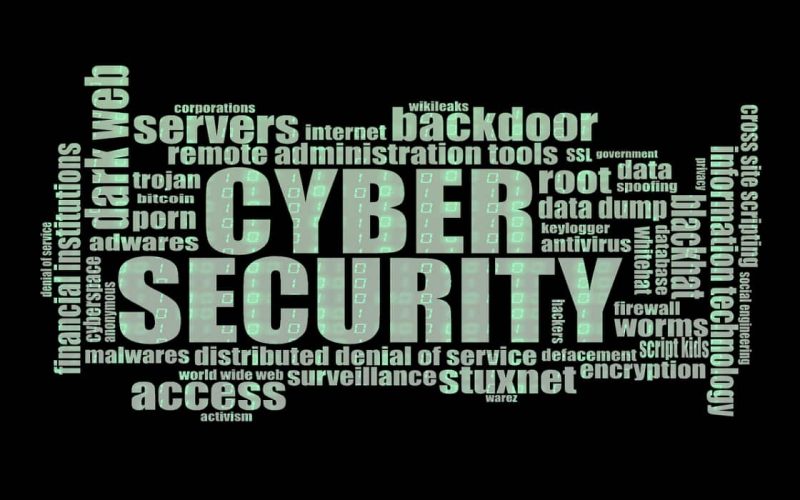According to the State of Cybersecurity Resilience 2021 report by Accenture, there was a 31% rise in security attacks from 2020 to 2021. This was accompanied by an increase in attacks per company from 2016 to 270 during the period.
Any breach or cyber attack can have devastating implications for businesses. Projections indicate that the cost of cybercrime will reach $10.5 trillion by 2025.
But that’s just the tip of the iceberg. Cybersecurity incidents result in a loss of trust by consumers, thus impacting revenues and potential growth. As a result, organizations are investing heavily in cybersecurity personnel to curb this menace and safeguard company interests.
So, if you’re thinking of becoming a cybersecurity professional, many opportunities are available. Read on to learn how to become a cybersecurity expert and the current industry outlook.
What Does a Cybersecurity Expert Do?
The role of a cybersecurity expert is to protect an organization’s computer networks and systems from malicious attacks. They do this by identifying security risks, implementing security measures, and monitoring activity on the network.
In addition, they are responsible for investigating breaches, conducting penetration tests, and developing disaster recovery plans. Cybersecurity experts also provide training to employees on how to identify and prevent identity theft.
How to Become a Cybersecurity Specialist
There are different paths you can take to become a cybersecurity professional. However, some steps are common across all, including:
- Get Educated
It’s not mandatory to have a formal education to venture into cybercrime. The most important thing is to have the necessary skills to perform the role well. However, most employers prefer candidates with some degree of schooling.
To be safe, consider earning a bachelor’s degree in computer science or information technology. Alternatively, you can get a degree in cybersecurity.
- Get Certified
Earning specific industry-recognized certifications can help you stand out when applying for jobs. They also show that you’re committed to staying up-to-date on the latest cybersecurity trends.
Some of the most popular certifications for cybersecurity professionals include:
- CompTIA Security+: Offered by CompTIA, this certification covers basic security concepts and is a good starting point for beginners.
- GIAC Security Essentials Certification (GSEC): This SANS Institute certification covers risk management and networking security topics.
- Cisco Certified Network Associate Security (CCNA Security): As the name suggests, this certification from Cisco is focused on network security.
- Check Point Certified Security Administrator (CCSA): Offered by Check Point, this certification covers topics such as firewall administration and VPN configuration.
- Certified Information Systems Security Professional (CISSP): This is one of the most popular certifications for cybersecurity professionals. It’s offered by (ISC)² and covers various topics, including asset security, security engineering, and communication security.
- Gain Experience
There’s no replacement for experience when it comes to becoming a cybersecurity expert. The best way to gain experience is to volunteer or intern with an organization in the field.
This will give you first-hand exposure to a cybersecurity professional’s day-to-day duties and responsibilities. You can also consider taking on short-term projects with different organizations to gain a diverse range of experience.
- Network
In addition to gaining experience, it’s also important to network with other professionals in the field. This will help you stay up-to-date with the latest trends and developments. It can also lead to job opportunities down the line.
You can join professional organizations such as the International Information Systems Security Certification Consortium (ISC)² or the Information Systems Security Association (ISSA).
- Keep Learning
The cybersecurity landscape is constantly evolving, so it’s essential to keep learning. This will ensure you’re always up-to-date with the latest threats and trends.
One way to do this is by attending industry events and conferences. You can also read articles and blog posts or listen to podcasts related to cybersecurity.
Work on Your Soft Skills
In addition to technical skills, certain soft skills are important for anyone in the cybersecurity field. These include:
- Communication: The ability to communicate complex technical information clearly and concisely is essential. This includes being able to explain things to non-technical staff and customers.
- Problem-solving: When dealing with cybersecurity threats, you need to be able to think quickly and come up with creative solutions.
- Critical thinking: You need to be able to analyze data and identify patterns to spot potential security risks.
- Organization: With so much data to keep track of, your approach must be organized and systematic.
- Leadership: In some cases, you may need to take charge and manage a team of security professionals.
- Research: To stay ahead of the curve, you must constantly research new threats and trends.
Careers in Cybersecurity
There are several different career paths you can take in cybersecurity. Some of the options include:
- Security analyst: A security analyst is responsible for identifying potential security risks and developing mitigation plans.
- Security engineer: A security engineer designs and implements systems to protect an organization’s data.
- Security consultant: A security consultant provides advice and guidance to organizations on improving their security posture.
- Security manager: A security manager oversees an organization’s security program.
- Information security specialist: An information security specialist ensures that an organization’s data is secure.
- Network security administrator: A network security administrator is responsible for protecting an organization’s network from attack.
- Computer security specialist: A computer security specialist ensures that an organization’s computers are secure.
- Information assurance analyst: An information assurance analyst is responsible for assessing an organization’s security risks and developing mitigation plans.
Is a Career in Cybersecurity Worth It?
So, is a career in cybersecurity worth it? The answer to that question depends on your goals and objectives. If you’re looking for an exciting, challenging, and ever-evolving field, cybersecurity is worth considering.
But it’s important to remember that this is not an easy industry to break into. You need to be willing to dedicate time and effort to learn the necessary skills. With that said, a career in this field can be rewarding if you’re passionate about cybersecurity and are willing to commit.
So if you’re up for the challenge, consider taking some or all of the steps outlined above. And who knows, maybe one day you’ll be the one advising on how to become a cybersecurity expert.
Related Topics
- 5 Reasons You Should Learn About Cyber Security
- What are the future prospects of a Cloud architect?
- The top benefits of getting CompTIA Network+ certification
- 5 Proven Cyber Security Certifications That Will Boost Your Salary
- 5 Proven Cyber Security Certifications That Will Skyrocket Your Salary








